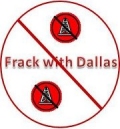This section provides information related to human and animal health and safety risks associated with natural gas production in both urban and rural environments. At issue are the myriad problems associated with airborne, waterborne and soilborne natural and man-made elements and compounds used in or disturbed by the process of natural gas drilling, frac'ing, extraction, compression and transmission. Also discussed is the issue of pipeline explosions that are almost always destructive of public and private property and frequenty take human lives.
Reported health issues of people living near natural gas well sites include minor irritations like burning eyes, sore throats, nosebleeds, sinus congestion, chest pains and similar ailments that dissipate shortly after getting away from the offending fugative emissions that cause the irritations to much more serious problems like endocrine disruption in fetuses and young children, male reproductive problems, severe respiratory ailments, asthma, chronic obstructive pulmonary disease (COPD), brain and nervous system disorders, gastrointestinal and liver ailments, immune system, kidney, blood and cardiovascular illnesss, cancer and other serious illnesses, some of which have resulted in death or permanent disability.
In April, 2009, 17 cows in Caddo Parish, Louisiana died almost immediately after drinking water from an overflowed frac pond at a gas well site owned by Chesapeake Energy. Chesapeake's response was, "During a routine well stimulation/formation fracturing operation by Schlumberger for Chesapeake, it was observed that a portion of mixed 'frac' fluids, composed of over 99 percent freshwater, leaked from vessels and/or piping onto the well pad." Chesapeake also stated, "On average, 99.5% of fracturing fluids are comprised of freshwater...." and "Other ingredients in fracturing fluid could affect your health - if you were exposed to them in high enough quantities. However, the concentration of these elements is far below the levels necessary to pose a threat." Yet, the spilled water killed 17 cows shortly after they drank it. The spill went unreported to authorities because there was no legal requirement to report it, according to Chesapeake officials.
Dr. Theo Colborn, PhD, who heads The Endocrine Disruption Exchange (TEDX) in Paonia, Colorado, has written and spoken extensively on the ill health effects of exposure to hydraulic fracturing chemicals and vapors. Dr. Colborn and other shave documented many cases of human health effects resulting from exposure to toxic, carcinogenic and neurotoxic compounds and vapors from hydraulic fracturing operations. More studies of a comprehensive nature are needed to determine the extent and severeity of human and animal exposure to the BTEX, VOC and NOx emissions associated with natural gas extraction, production and distribution. The links below present more detailed information on health issues known to be related to living or working near a natural gas well site.






















